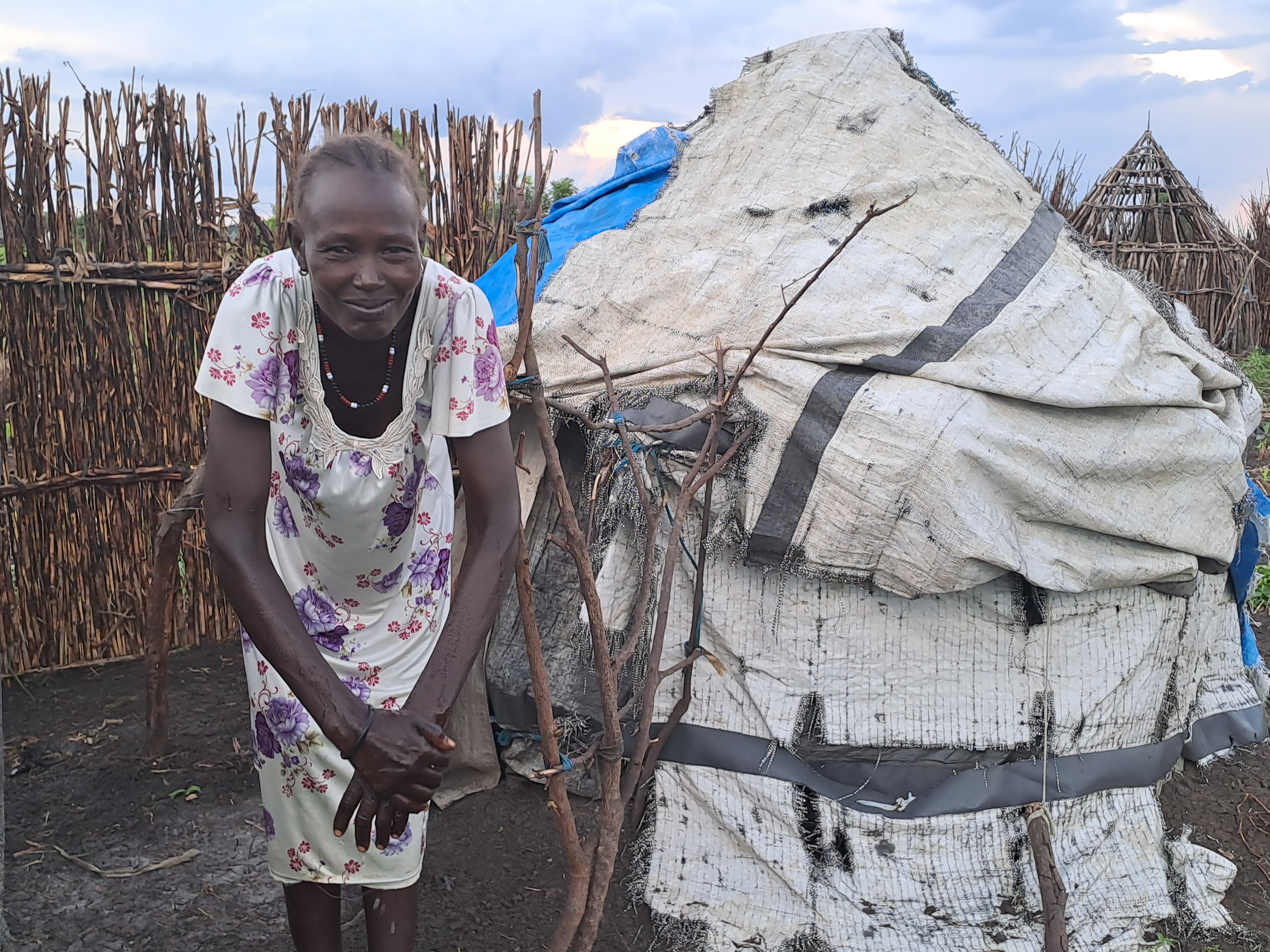
Akobo County is located in the north-eastern part of Jonglei State in South Sudan. In Akobo over 85.8 percent of the households do not have access to a household latrine. This open defection can lead to diarrhea and other illness in communities, especially in children. But the construction of pit latrines in Akobo has proven difficult as the soil texture and heavy rainfall lead to flooding causing latrines to collapse.
USAID Afia WASH promotes a zero-subsidy approach to sanitation measures, encouraging the use of locally sourced materials that are affordable and readily available. To address the collapsible soil problem in Akobo, the latrine is built by lining the pit with locally sourced tree poles modified into thick lengthy flexible sheets and reinforcing the unstable soil walls with traditional hardwood slabs. We then use a combination of traditional Community-led Total Sanitation and pride-based approaches to trigger and promote latrine construction.
In some communities, USAID Afia WASH uses pride-based approach to promoting latrine construction, which differs from the triggering approach commonly used in Community-led Total Sanitation approaches. This approach, similar to others used by DT Global in past programs, encourages community members to adopt crucial sanitation and hygiene behaviors without using the disgust method.
Families in Nayndit Payam were participants in this approach, including one villager, Nyareth Hoth. Nyareth, and many families in this village, suffered from diarrhea and other health issues due to sanitation issues. As Nyareth said, “I used to visit the health facility frequently. This was a nightmare because the queues were very long. I would leave in the morning and would come back by evening. If the diarrhea was too severe, I would have to go to the private clinics which charged too much money about 20,000 SSP (equivalent of 20 US Dollars) which I could not always afford.”
Using a model home for instruction, Afia WASH staff showed Nyareth and other villagers how to use local material to build latrines.
“I build my latrine in two months using only the local materials,” said Nyareth. “I was very excited when I began to see the actual changes in my family. Now in my household I have not experienced any sickness when it comes to diarrhea, my children are well, and I have even managed to save up the money and put it towards feeding.”
Nyareth became a champion of hygiene following the sanitation activity with Afia WASH. “When I realized hygiene was the main issue leading to all the challenges I had been facing, I decided to be an active participant in promoting hygiene.”
She shares that every chance she gets, she now enrolls in programs which allow her to spread awareness on the significance of hygiene in the home and community. “I speak to my neighbors and other neighboring communities whenever I get the chance to do so. It is very liberating since I know that there will be a change if they heed the messages we are sharing.”